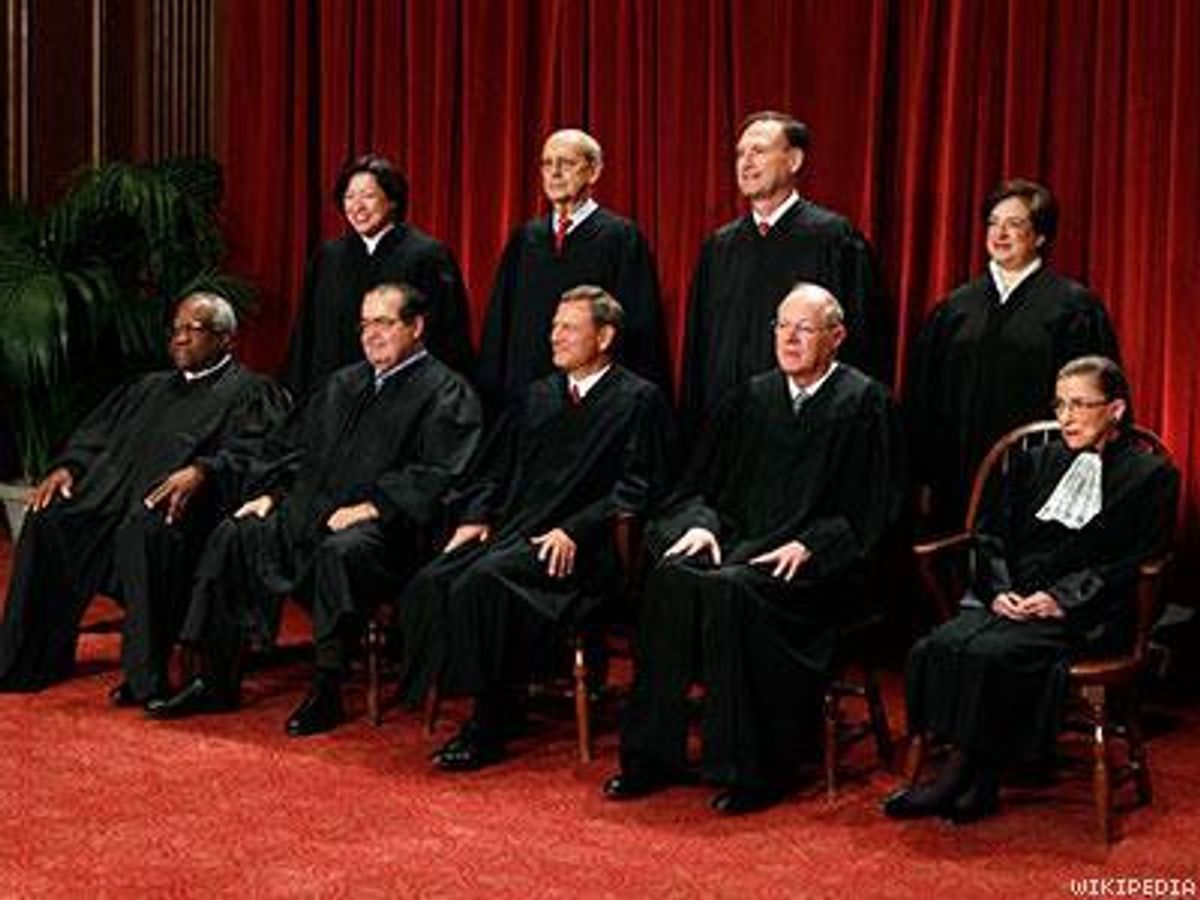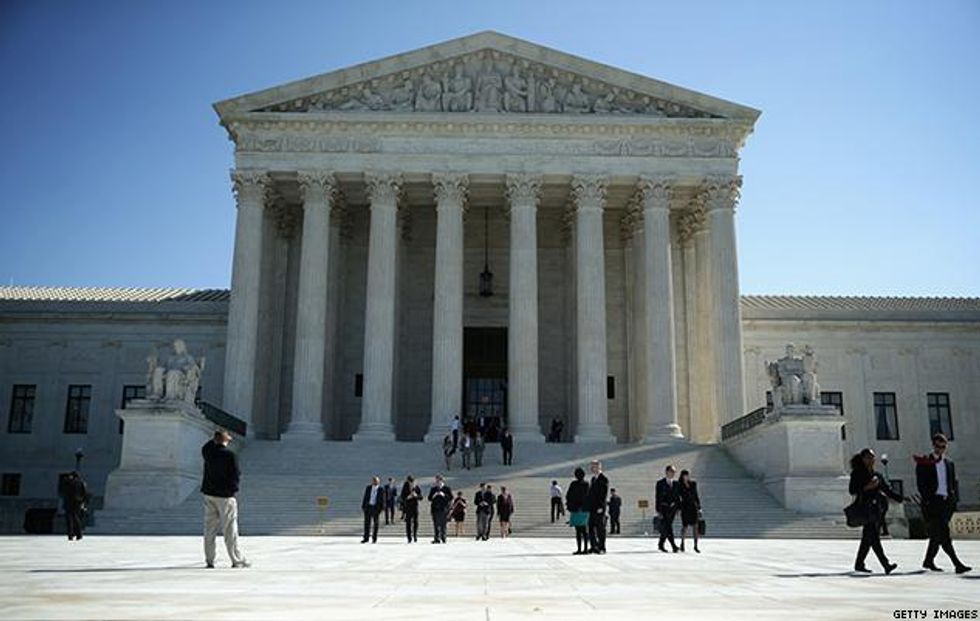The United State Supreme Court won't hear any of the seven cases regarding marriage equality in five states, which means lower court decisions ruling in favor of same-sex marriage will stand and could quickly spread to other states in their jurisdiction.
With the court's decision not to hear those cases, bans on same-sex marriage in Utah, Indiana, Wisconsin, Virginia, and Oklahoma are immediately reversed and couples will soon be able to wed.
The Supreme Court also let appellate court rulings from the Fourth, Seventh and Tenth Circuits stand, which means lower court judges in those states must abide by their appeals court process. A round of legal uncertainty could be in the near future for couples in states also within those circuits where the effect of the Supreme Court's decision may quickly spread -- West Virginia, North Carolina, South Carolina, Kansas, Colorado and Wyoming.
That's what happened on a smaller scale earlier this year when the Tenth Circuit ruled in favor of marriage equality in Utah. Boulder County Clerk Hillary Hall in Colorado, also part of the Tenth Circuit, decided that gave her clearance to start issuing marriage licenses to same-sex couples. As an elected official sworn to uphold the state and U.S. Constitution, Hall said it was her duty to follow the law and issue marriage licenses to same-sex couples who want them.
For now, 24 states and the District of Columbia extend full marriage rights to same-sex couples.
The high court had previously issued stays to block appeals courts from allowing same-sex couples to wed in Utah and Virginia, which was a signal to observers that the court would weigh in on the cases. However, Justice Ruth Bader Ginsburg said recently that the court had no urgency in taking up marriage cases again because there had so far been unanimity among lower courts in allowing same-sex couples to marry. Judges have based their decisions on the Supreme Court's 2013 Windsor ruling that struck down a section of the Defense of Marriage Act that had barred the federal government from recognizing the legal marriages of same-sex couples.
Chad Griffin, president of the Human Rights Campaign, said the Supreme Court's decision not to hear the cases is surprising, but the situation is unsustainable.
"Any time same-sex couples are extended marriage equality is something to celebrate, and today is a joyous day for thousands of couples across America who will immediately feel the impact of today's Supreme Court action," he said in a statement shortly after the ruling. "But let me be clear, the complex and discriminatory patchwork of marriage laws that was prolonged today by the Supreme Court is unsustainable. The only acceptable solution is nationwide marriage equality and we recommit to ourselves to securing that ultimate victory as soon as possible."
 People come out from the U.S. Supreme Court Monday in Washington, D.C. The Supreme Court announced that it will not hear the seven pending marriage equality cases, paving the way for same-sex marriage in 11 more states.
People come out from the U.S. Supreme Court Monday in Washington, D.C. The Supreme Court announced that it will not hear the seven pending marriage equality cases, paving the way for same-sex marriage in 11 more states.


 People come out from the U.S. Supreme Court Monday in Washington, D.C. The Supreme Court announced that it will not hear the seven pending marriage equality cases, paving the way for same-sex marriage in 11 more states.
People come out from the U.S. Supreme Court Monday in Washington, D.C. The Supreme Court announced that it will not hear the seven pending marriage equality cases, paving the way for same-sex marriage in 11 more states.















































































Viral post saying Republicans 'have two daddies now' has MAGA hot and bothered